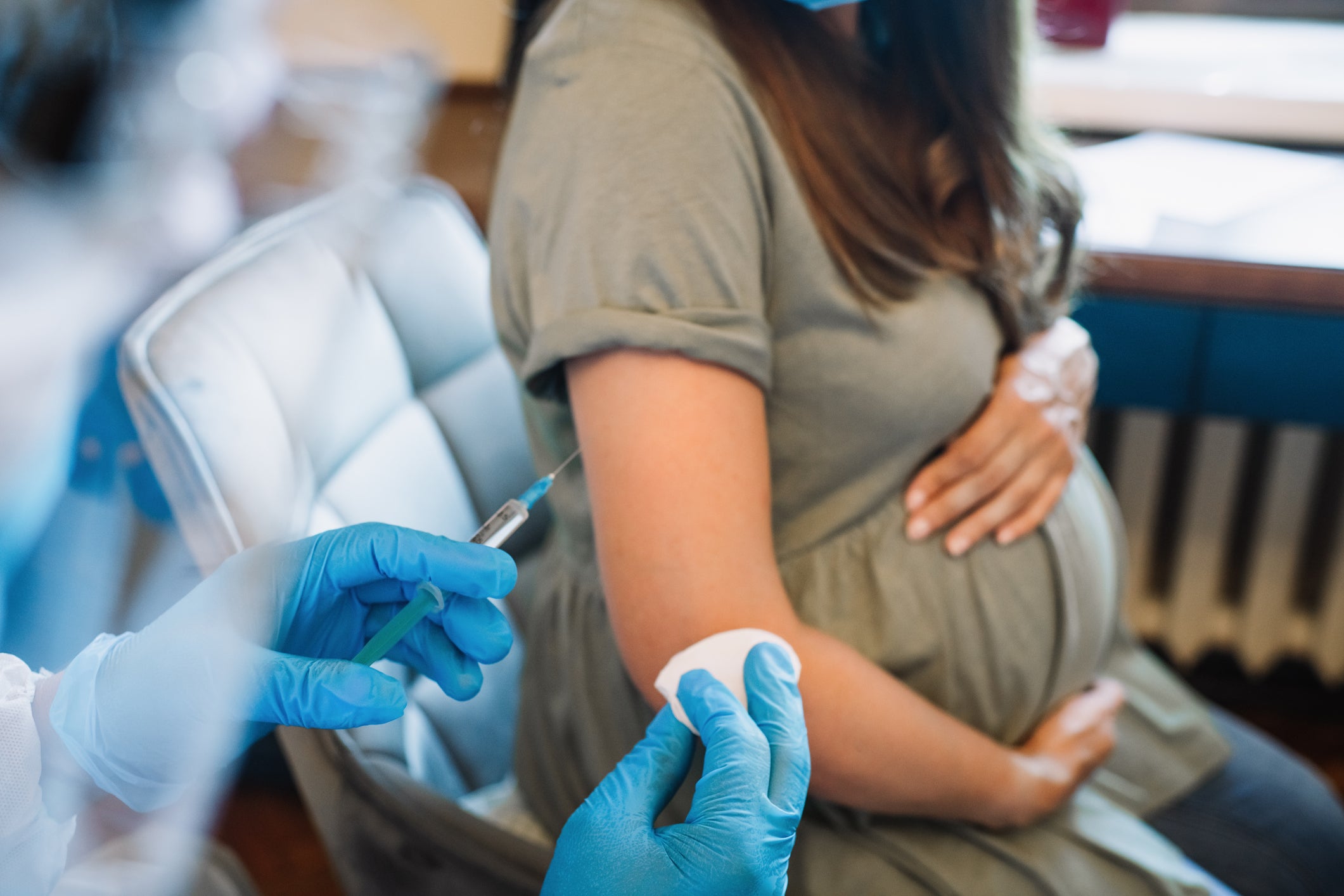Is distrust in politics linked to falling vaccination rates?
Party politics might not be to blame for vaccine hesitancy but trust in public health advice has been weakened since the pandemic, says Sean O’Grady


At a time of intense pressure on the NHS, falling rates of vaccination for whooping cough and measles, mumps and rubella (MMR) have alarmed the UK Health Security Agency. The latest development is that another baby has died from whooping cough, bringing the total to 10 since the beginning of the year, with some 10,493 cases recorded in June.
The number of pregnant women with vaccination coverage in March was 58.9 per cent, a significant drop off from the peak coverage of 72.6 per cent in March 2017. All of this is despite the overwhelming scientific evidence for the efficacy of vaccines, and evidence that vaccination at the right time in pregnancy provides 92 per cent protection against infant death.
Why is this happening?
The most obvious cause is the spike in “anti-vax” propaganda that occurred during the Covid-19 pandemic. While the Covid-19 vaccine was promoted as safe and effective, with few serious side effects, it could cause more serious problems in rare instances. Although the anti-vax movement started by trying to discredit only Covid vaccines, it has spread to other, established vaccines. This added to the myths surrounding a supposed link between the MMR vaccine and autism – something long disproved – but resistance to MMR in particular has persisted. Social media has helped spread conspiracy theories amid a certain “anti-establishment” mood. In turn, this seems to have boosted the wider anti-vaccination and anti-science movement. They all pose a growing threat to public health.
Is it all about the anti-vaxxers?
No. In the case of whooping cough it is fair to add that it is a cyclical disease, with spikes in cases following a certain pattern. Whooping cough peaks every three to five years, and the last cyclical peak was in 2016. That followed the previous major outbreak in 2012. As with many other communicable diseases, notably flu, cases fell to very low numbers during the pandemic due to restrictions, social distancing and public caution. With the relaxation of these rules, the “overdue” whopping cough peak seems to have arrived – and the impact of the pandemic also means there is reduced immunity to whooping cough in the population. But the drop-off in vaccination rates has also been an unwelcome factor in the trend.
What can be done?
Such is the pernicious effect of anti-vax misinformation, now querying every kind of jab, and eagerly propagated by people on social media, it will be difficult for the public health authorities to reverse these unfortunate trends. A programme of public health education would obviously assist, but the most powerful argument, unfortunately, comes from the evidence of serious illness and death from disease that were previously under control. Once the rate of vaccination in a population drops below a certain level then “herd immunity” (which we heard so much about in the Covid pandemic) is lost and a disease spreads exponentially.
What are the other dangers?
Most experts agree it is only a matter of time before there is another pandemic, and, given the much higher levels of scepticism about vaccination, it will probably prove even harder to deal with than Covid-19 even if a new vaccine can be produced as quickly. This backdrop will add to the human cost and make the economic disruption even worse than it would otherwise be.
What are the politics of this?
There isn’t much party political dispute about these issues. Only Reform UK has hopped onto the anti-vax bandwagon by calling for an inquiry into the Covid vaccine (seemingly unaware of the massive public inquiry into the Covid response now being chaired by Baroness Hallett).
One political aspect of vaccination at the moment concerns the way health authorities in the UK have restricted access to Covid booster jabs to the over-65s and those with serious clinical vulnerabilities. This has been in stark contrast to the more liberal and precautionary approach in other Western societies. Other things being equal, it will lead to more Covid cases, and indeed this may already be happening, albeit not attracting very much attention. As a consequence, Britain will continue to suffer from a disproportionately high incidence of long Covid, with health consequences for affected families and a further impact on the labour market.



Join our commenting forum
Join thought-provoking conversations, follow other Independent readers and see their replies
Comments